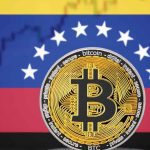The United States Securities and Exchange Commission (SEC) has made a surprising decision by requesting the dismissal of its lawsuit against two key figures in the crypto world: Ripple CEO Brad Garlinghouse and co-founder Chris Larsen.
IMPORTANT POINTS:
- SEC drops lawsuit against Ripple executives.
- Historical ruling: XRP sales are not securities.
- Desenlace could redefine crypto regulation in the US
Origins of the Conflict with Ripple
It all dates back to 2020. Back then, the SEC targeted Ripple, alleging that it had raised more than $1.3 billion through an unauthorized digital asset offering. However, a ruling in July changed the course of events, establishing that Ripple’s XRP sales were not classified as securities.
Industry Implications and Reactions
This withdrawal by the SEC not only represents a change in its initial stance but could also be an indicator of the future regulatory framework for cryptocurrencies. Stuart Alderoty, legal representative of Ripple, did not hesitate to describe this action by the SEC not as an agreement, but rather as a “surrender.” The echo of this decision resonated strongly in the crypto sector, as it could have repercussions on the global regulation of digital currencies.
Brad Garlinghouse, for his part, did not hide his discontent with the SEC, pointing out that the entity tried to damage his reputation and that of Ripple. Despite the adversities, he celebrated this new victory. Reflecting the impact of this news on the market, XRP saw a 6% increase in its value, showing the importance of this legal shift.
A Future of Collaboration
With the lawsuit now behind us, both the SEC and Ripple are preparing for future discussions. These conversations will seek to define measures and agreements around Ripple’s position in the market. This approach not only benefits Ripple but could also set a new standard for cryptocurrency regulation in the United States.












